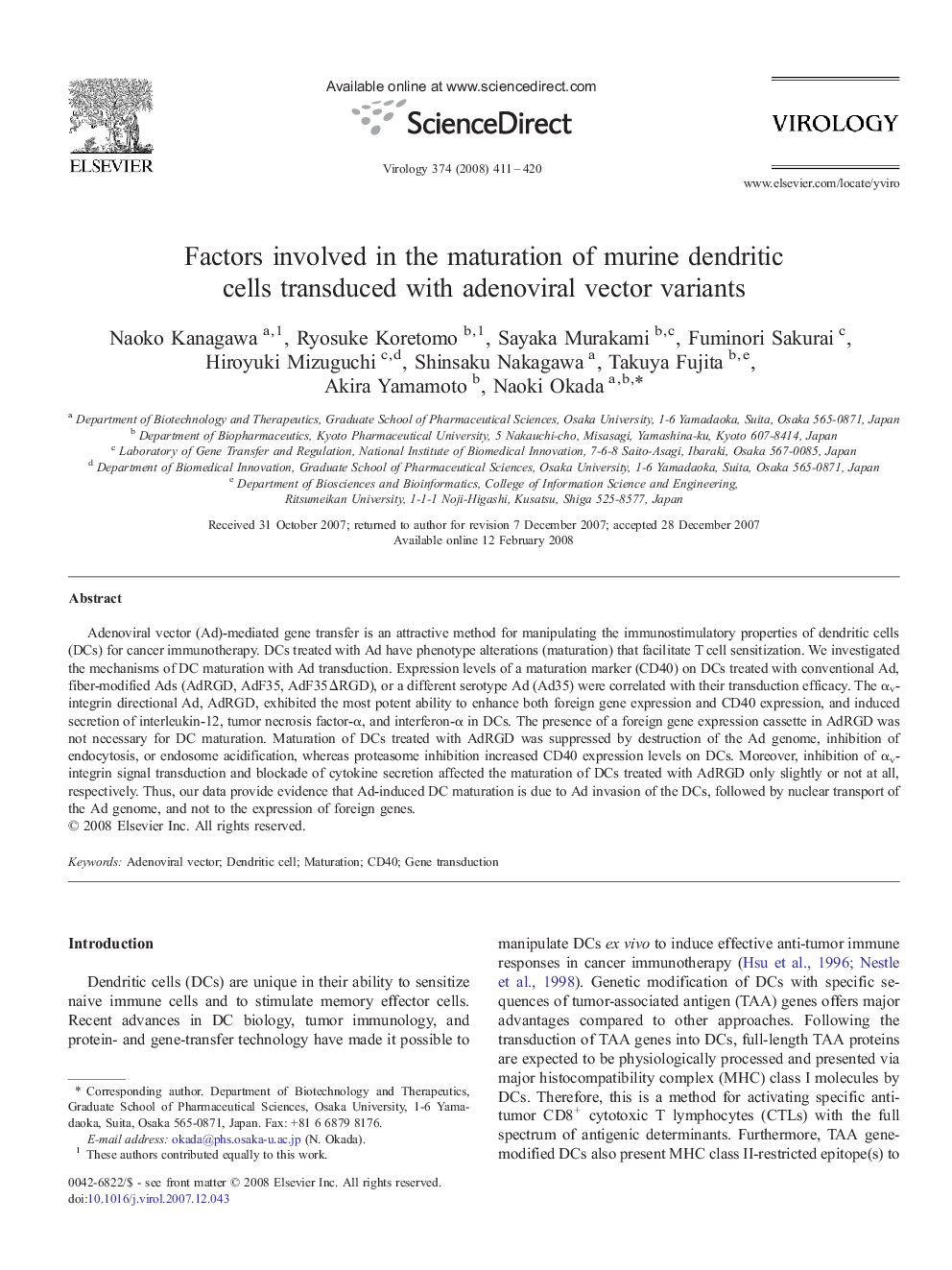| Article ID | Journal | Published Year | Pages | File Type |
|---|---|---|---|---|
| 3426132 | Virology | 2008 | 10 Pages |
Adenoviral vector (Ad)-mediated gene transfer is an attractive method for manipulating the immunostimulatory properties of dendritic cells (DCs) for cancer immunotherapy. DCs treated with Ad have phenotype alterations (maturation) that facilitate T cell sensitization. We investigated the mechanisms of DC maturation with Ad transduction. Expression levels of a maturation marker (CD40) on DCs treated with conventional Ad, fiber-modified Ads (AdRGD, AdF35, AdF35ΔRGD), or a different serotype Ad (Ad35) were correlated with their transduction efficacy. The αv-integrin directional Ad, AdRGD, exhibited the most potent ability to enhance both foreign gene expression and CD40 expression, and induced secretion of interleukin-12, tumor necrosis factor-α, and interferon-α in DCs. The presence of a foreign gene expression cassette in AdRGD was not necessary for DC maturation. Maturation of DCs treated with AdRGD was suppressed by destruction of the Ad genome, inhibition of endocytosis, or endosome acidification, whereas proteasome inhibition increased CD40 expression levels on DCs. Moreover, inhibition of αv-integrin signal transduction and blockade of cytokine secretion affected the maturation of DCs treated with AdRGD only slightly or not at all, respectively. Thus, our data provide evidence that Ad-induced DC maturation is due to Ad invasion of the DCs, followed by nuclear transport of the Ad genome, and not to the expression of foreign genes.
